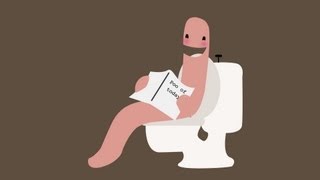(单词翻译:单击)
Think of all the food made in the world each year. Hard to picture?
想象一下全世界每年生产的食物。可能有点难吧?
Then, imagine that you are all of humanity,
那么就想象你就是整个人类,
and on a plate in front of you is the one lovely annual meal you make for yourself.
在你的面前有一盘食物,是你为自己准备的一份可爱的年度大餐。
You did all sorts of work putting that meal on your table.
辛辛苦苦劳动了一年才做出了眼前这一盘。
You must be eager to consume the fruits of your labor.
你一定急着想吃下你的劳动成果。
And the vegetables and meats and waffles of your labor, too, right?
有蔬菜,肉类,还有华夫饼,是不是?
Well, oddly enough, a third of that meal ends up in the trash.
但奇怪的是,那盘食物的三分之一都被倒进了垃圾桶。
A third of the food we eat globally, an estimated 1.3 billion tons ends up as waste.
全球消费的食物的三分之一,大约13亿吨,都变成了垃圾。
All the work we put into producing that food is wasted. And what's worse, it costs us.
我们所有投入生产这些食物的劳动都被浪费掉了。更糟糕的是,我们还要为此交费。
America alone spends an estimated 165 billion dollars a year managing food waste.
单是美国一个国家一年就要花费1650亿美元来管理食品废物。
We're wasting food, energy, and money.
我们在浪费食物、能源和金钱。
Perhaps worst of all, we're wasting the chance to change, to make the system of food consumption more efficient.
也许最糟糕的是,我们在浪费使我们的食品消费更加高效的变革的机会。
If you want to bring on that change, you should know about a humble yet diligent and ever-so-crucial ally: the worm.
如果你想带来一个变革,那么你应该了解一个很低调、但又很勤奋和关键的盟友:蠕虫。
Worms convert organic waste and other compostable products into natural fertilizers.
蠕虫把有机垃圾和其它可分解的东西转换成天然肥料。
Up to 75% of what we put in the waste stream can become food and bedding material for vermicomposting.
我们的垃圾中,有将近75%都可以成为蠕虫分解所需的食物和垫底材料。
You can create a worm bin in your own home to see the composting process in action.
你可以在家里做一个蠕虫箱,来看分解是如何进行的。
First off, you need worms and not your typical earthworms.
首先你需要蠕虫,不过不是你常见的蚯蚓。
You need redworms, eisenia foetida, the species responsible for most vermicomposting in North America.
你需要活赤虫,学名是eisenia foetida,北美大部分的蠕虫分解都归功于它。
These red wigglers are surface dwellers who don't burrow too deep, they're optimal feeders around room temperature,
这些红的蠕动的东西生活在地面,它们不会钻得很深,它们最喜欢室温,
and they're well-suited to converting organic waste into usable fertilizer.
很擅长把有机废物转换成有用的肥料。
Now, your worms might be vermin, but they need a comfortable space to live and work:
不过虽然你的蠕虫能做分解,它们还是需要一个舒适的环境来生活和工作:
some bedding materials, either shredded paper or cardboard, some moisture,
包括一些垫底材料,比如说碎的纸片或纸板,以及一些水分,
and, of course, food, mainly, your leftovers, slightly decomposed table scraps.
当然还有食物,主要是你剩的食品,也就是你饭桌上有点变质了的饭菜。
The worms break down food waste and other organic matter into castings, a fancy synonym for worm poop.
蠕虫将废弃食物和其它有机的东西分解为排泄物,也就是蠕虫的大便。

Their excrement is absolutely teeming with microbes, which continue the decomposition process,
它们的大便充满了微生物,这些微生物继续分解,
making all those once-wasted nutrients available again as fertilizer.
使得这些曾经被浪费掉的营养再次成为有用的肥料。
The timeline for the whole process varies depending on the quantity of worms,
这一整个过程所需时间取决于蠕虫的数量,
the temperature, and how much waste is added to the bin.
温度以及桶里有多少垃圾。
And there's another timeline to consider.
还有另外一个时间轴要考虑。
In a healthy worm-bin habitat, worm reproduction will occur when the wigglers become sexually mature,
在一个健康的蠕虫-分解桶的环境下,当蠕虫性成熟后,繁殖就会发生。
indicated by an elongation of the segments into a bulbous structure.
它们身体的一部分会变大。
Three-month old wigglers can produce two to three semi-translucent yellow worm cocoons a week.
三个月大的蠕虫可以每个星期生产两到三个半透明的黄色虫茧。
You thought only moths and butterflies come out of cocoons? Well, we can't all be majestic.
你以为只有飞蛾和蝴蝶会从茧里出来?当然我们都有错的时候。
It takes around 11 weeks for new babies to hatch.
小宝宝的孵化需要大约11个星期。
When your bin seems to be full of living vermicelli noodles,
当你的桶里装满了活的蠕虫面条时,
it's time to share the bounty with your friends and start a vermicompost club.
你就可以和你的朋友分享并开启一个蠕虫分解俱乐部。
Or keep those worms to yourself and start a business.
或者你自己留着这些蠕虫,以便开始一个小生意。
Vermicomposting isn't confined only to small worm bins, it's an emerging entrepreneurial enterprise.
蠕虫分解并不只局限于小的蠕虫桶,它也是一个新兴的适合创业的行业。
Large-scale facilities convert bulk organic waste and even manure into rich, black castings called black gold.
大型的设施可以将大量的有机废物甚至排泄物转换成丰富的、黑色的东西,也被称为黑金。
Its value as a soil additive is unparalleled, and it can help plants resist harmful pathogens.
它作为土壤添加剂的价值是无可比拟的,同时它还能帮助植物抵抗有害的病菌。
The lack of available land in urban environments,
城市里可耕种土地的匮乏,
coupled with growing interest in smaller-scale farming means there is a market for vermicomposting.
加上越来越多对小型农作物种植的市场需求,将给蠕虫分解提供一个市场。
Many communities use composting as part of zero-waste strategies,
很多社区把蠕虫分解作为零废物策略的一个部分,
and they can sell their worm-eaten table scraps to local farms, hungry for rich fertilizer.
他们可以将蠕虫分解过的残羹剩饭卖给很需要高质肥料的当地农场。
So, instead of wasting money, dumping wasted food in landfills, we can remake waste into an asset,
所以,我们不再需要浪费钱财将残羹剩饭倒在填埋场,我们可以将废物转换为有用的财富,
putting it back into our food system to make it more sustainable, all with the help of the humble worm,
把它们重新投入到食物系统中,使之更能可持续发展,这都归结于低调的蠕虫的帮助,
the tiny organism that can help us change the way we look at food's place in our lives and our place in the world,
这些小小的生物体可以帮助我们改变对食物在我们生活中,以及我们在这个世界上所扮演角色的看法,
as long as we give the little guy a place at our table.
只要我们给这些小家伙在我们的饭桌上一个位置。
Well, not an actual seat at the table. A bin in the shed is fine.
当然并不是一个真正的座位。一个垃圾桶就可以了。


